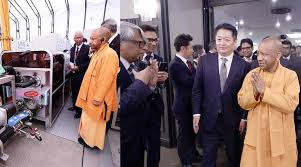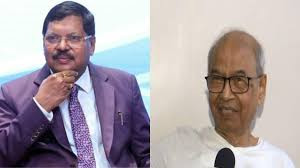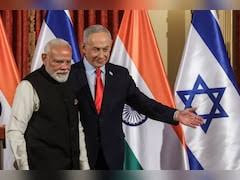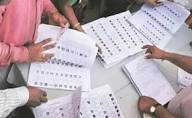“How Can We Allow Fake Voters?” Poll Body Chief Questions Integrity During Bihar Voter List Overhaul
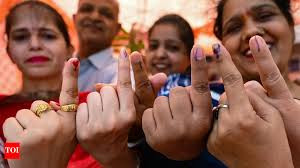
IIE DIGITAL DESK : Bihar gears up for its upcoming legislative assembly elections scheduled later this year, the Election Commission of India (ECI) has initiated a formidable campaign: a “Special Intensive Revision” (SIR) of the state’s electoral roll. Targeted door-to-door verification efforts commenced on June 25, with booth-level officers tasked to reach out to approximately one crore households across 38 districts. The rigorous campaign aims to eliminate ineligible entries and strengthen democratic processes. However, it has ignited sharp political backlash as well as serious concerns about potential disenfranchisement from across the political spectrum .
The poll body describes the exercise as an essential step to weed out deceased persons, migrants, and unlawful entries. A recent declaration revealed over 52 lakh names had already been struck off—either due to mortality or migration — while asserting that all eligible electors were duly included in the draft due for publication on August 1 .
Nonetheless, the standout revelation emerged when the EC signaled that numerous foreign nationals from countries like Nepal, Bangladesh, and Myanmar were found attempting to gain inclusion in the electoral rolls. According to sources, these individuals reportedly used documents such as Aadhaar, ration cards, or domicile certificates obtained fraudulently. The poll commissioner posed a provocative question: “How can we allow fake voters?”—underscoring the urgency of the purge.
The EC explained that individuals identified as non-citizens would be excluded from the final list, scheduled to be released by September 30. Investigators are now cross-verifying places of birth and authentic documentation to substantiate the claims . Field reports mentioned “a considerable number of people from neighbouring countries”, an unsettling discovery that threatens the credibility of the voter registry .
Political response has been swift and fiery. Opposition leader Tejashwi Prasad Yadav of the RJD condemned the EC’s revelations as conjecture. He challenged the veracity of the sources backing the EC’s claim, “Has the Election Commission issued any document or press release over the matter? This claim is based on ‘sources’ and I term them rubbish,” he asserted at a press conference in Patna . He contended that the lack of formal verification renders the allegations baseless and premature.
On the other side, the BJP responded with counter-accusations, stating that the opposition’s alarm stems from apprehension over losing access to an “illegal vote base.” State BJP spokesperson Manoj Sharma stated, “If Tejashwi had his way, he would allow citizens from Bangladesh and Pakistan to vote through postal ballots…” He went on to allege that the RJD had enabled smuggling of non-citizens into the rolls, while ironically neglecting genuine Bihari migrants residing elsewhere .
Escalations reached New Delhi, where a delegation of 11 opposition parties from the INDIA bloc met the ECI to protest the timing and methodology of the SIR. CPI(ML) leader Dipankar Bhattacharya called the process “votebandi”, asserting that the poll body failed to deliver satisfactory responses, thereby intensifying their mistrust .
Pressure from the judicial system also came into play. The Supreme Court of India intervened to instruct the ECI to accept voters’ Aadhaar cards, ration cards, and voter ID cards as valid proof for enrolment under the SIR . Prior to this, dispute had brewed over which documents should qualify, raising significant anxiety about the future of 41 lakh voters who risked exclusion due to lack of proper identification .
Critics argue that the SIR exercise, though officially framed as a constitutional necessity, could effectively serve as a political tool. The INDIA bloc has raised concerns that poor, marginalized, tribal and Dalit populations, along with internal migrants and those without formal documentation, could be disproportionately affected—tilting the electoral balance in favor of the ruling alliance .
Meanwhile, the ECI has defended its strategy, emphasizing that it complies with legal requirements and seeks to bolster electoral integrity. In a comprehensive affidavit spanning 789 pages filed with the Supreme Court, the EC insisted that commonly held documents like Aadhaar and voter ID alone were insufficient as proof of citizenship, justifying its rigorous validation standards .
This voter list overhaul in Bihar thus stands at the intersection of administrative diligence and political contention. While the EC asserts its mandate to deliver a clean and accurate registry free of duplications, fraudulent entries and ineligible persons, the opposition accuses the process of sidelining vulnerable communities under the guise of electoral purity.
What remains clear is that the fate of millions hangs in the balance: whether the final voter list will reflect a democratic triumph in electoral accuracy, or mirror a politically engineered disenfranchisement depends on how fairly and transparently this SIR exercise concludes before the checklist culminates with final publication on September 30.
You might also like!






